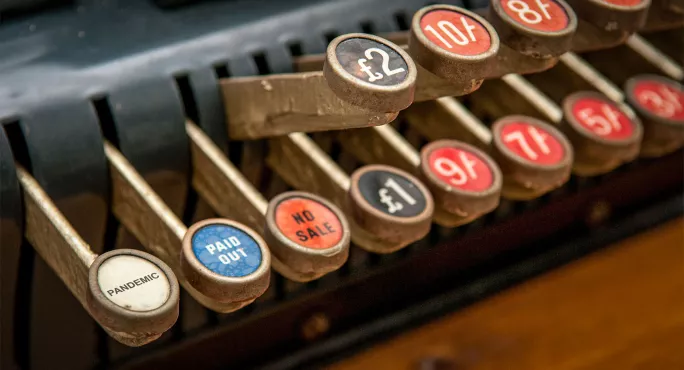Covid inquiry: Money was ‘more important’ than safety of school staff

A Scottish teaching union has painted a bleak picture of the situation teachers found themselves in during the pandemic, saying they were “terrified” of going into school - but that there was “a push to keep provision open” and an unwillingness from councils to put in place costly mitigations.
In evidence to the Scottish Covid-19 Inquiry, Seamus Searson, general secretary of the Scottish Secondary Teachers’ Association (SSTA), said money was “a big factor” when it came to safety measures in schools.
He recalled a lack of consistency across Scotland and councils trying to implement safety measures as cheaply as possible because they had “no trust that monies would be forthcoming from Scottish government”.
‘No funds for the pandemic’
Mr Searson said unions were told that some local authorities had “no funds for emergencies such as the pandemic”.
“Safety measures should have been universal and not left to the discretion of each local authority, many of whom baulked at these due to the potential costs,” he said. “Money appeared to be more important than the safety of staff.”
Mr Searson predicted that if another pandemic was to occur, Scotland would not be prepared for it. He highlighted poor IT connectivity, saying that “it is as though the Covid-19 pandemic never happened and no preparation has been made for the future.”
He also highlighted a reluctance to recognise the problem of children being behind in their learning, saying this was likely contributing to challenging behaviour in schools.
S4 students now, who are preparing to sit exams, were “at least two years behind in their education because of all that was missed during lockdown”, he said.
- Background: Ten educators share their experiences of Covid turmoil
- Also this week: Teachers’ fears ‘downplayed’ in pandemic
- News: Heads challenged to show alternatives to toxic male role models
In hindsight, pupils in P7 when the first lockdown hit should have repeated the final year of primary school - the drive “to get things back to normal” was not in their best interests.
Mr Searson said pupils at the end of primary school in 2020 had missed “major milestones” and had not been “emotionally or educationally ready to move up”, with the same true for those at the end of S2 making subject choices and those leaving secondary school.
He said: “I appreciate there would have been challenges and difficulties suggesting pupils repeat a year of education. However, a lot of money was spent on the pandemic, and it could have been better used by accommodating the needs of pupils, especially those leaving primary and secondary.”
Mr Searson made his comments in written evidence submitted to the Scottish Covid Inquiry, published to coincide with the evidence he gave in person yesterday.
Yesterday, EIS teaching union general secretary Andrea Bradley also gave evidence and last week NASUWT Scotland’s national officer Mike Corbett did so.
Minority groups ‘unheard and isolated’
Mr Corbett highlighted that teachers in minority groups felt “unheard and isolated”; Black, Asian and minority-ethnic teachers felt “ongoing bitterness and distrust of Scottish government for its failure to recognise and address the disproportionate impact of the pandemic on minority groups”.
On the “push” to keep schools open, Mr Searson said it was hard to know where that pressure was coming from, but his view was “that it was less from Scottish government and more from local authorities and headteachers who maybe felt it was a badge of honour to keep their schools open”.
Mr Searson acknowledged the “tremendous” pressure heads were under: “many” had agreed with the SSTA that staff who were vulnerable or had vulnerable family members should not attend school in person.
However, “some were pedantic about everybody doing ‘their share’ regardless of teachers’ circumstances”, meaning that “everybody had to come in at some point over a week or two weeks” during lockdown.
He added that “in some places, the general rule was that all teachers had to attend their workplace”.
Mr Searson recalled that local authorities also showed a lack of understanding of teachers’ personal circumstances, suggesting that some senior officers “did not take the situation seriously” and “had no real idea of what was happening in the schools”.
Unions tried to get across their members’ fears, but it seemed “as if [they] were not believed”.
He said: “The main lesson that needs to be learned is to value staff, as it was the staff that got the country through the pandemic, and that needs to be recognised.”
For the latest in Scottish education delivered directly to your inbox, sign up for Tes’ The Week in Scotland newsletter
Keep reading for just £1 per month
You've reached your limit of free articles this month. Subscribe for £1 per month for three months and get:
- Unlimited access to all Tes magazine content
- Exclusive subscriber-only stories
- Award-winning email newsletters
topics in this article



